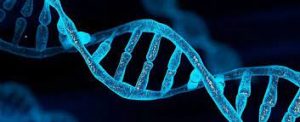Genetics
Recessive Inheritance and Egg Donor Genetic Screening
We each inherit two copies of our genetic material, one from our mother’s egg. Genetics testing looks for mutations. Which are flaws or alterations in a gene’s DNA that might cause the gene to stop working properly. Mutations in both the egg’s genes cause the majority of genetic illnesses. Saying is the person carrier of a mutation if they contain only one copy of the gene that contains the mutation. In virtually all circumstances, being a carrier does not result in an illness or other consequence.
Autosomal recessive inheritance is the name given to this way of heredity. One mutation is not enough to induce symptoms in many disorders. Because only one functioning copy of the gene is necessary to be healthy. Depending on the number of genes analyzed. A large number of the population, including donors, is carriers for between 3-5 autosomal recessive disorders. Being a carrier for the majority of autosomal recessive illnesses is can’t connecting to any health issues
A child is born with the disease chance is increasing by 25%. If both genetic parents are carriers of the same disease. There is a 50% chance that the child will be a carrier but will not have symptoms, and 25% that the child will receive two normal copies of the gene and be healthy.
What if my egg donor is a disease carrier?
Because many carrier screens look for a variety of diseases. It is rather usual for people who undergo recessive disease carrier screening to discover they are a carrier of one or more of them. When an egg donor is found to be a carrier of a recessive genetic illness. It does not necessarily indicate that the donor is unhealthy, and it is rarely a reason to reject a particular donor. Egg donors who are carriers are usually healthy and show no indications of the illness. Because harbouring only one mutation causes no issues. Every person possesses an average of 2.3 recessive mutations, whether they are an egg donor or not.
If you choose an egg donor who is a carrier of a recessive genetic disorder
You should also have your male spouse or sperm donor tested for the disease. While testing negative for a condition does not completely remove the potential of being a carrier. It does significantly lessen the likelihood. Testing using a procedure known as sequencing is extremely accurate. It can typically lower the chance of being a carrier to less than 1%. In general, if your egg donor is a recessive disease carrier and your spouse or sperm donor has been tested and is negative, your chances of having an affected child are greatly reduced.
Using an egg donor who is a recessive genetic disease carrier has a 50% risk of having a recessive genetic disease carrier child. A child who is a carrier, like the egg donor, is healthy and shows no signs or symptoms. This is not something to worry about in terms of the child’s health. It would be information to give to them as adults, allowing them to get genetic testing to see whether they are at risk of producing a kid with the disease.
Are there any additional genetic illnesses for which egg donors are screened?
We are checking egg donors for genetic illnesses which are inherent in an X-linked fashion. When we look at our DNA on a broader scale, we can see that our chromosomes contain a large number of genes. chromosomes are arranging in 23 pairs the average person has 46. We take two copies of each chromosome: one from the egg and one from the sperm. The first 22 pairs of chromosomes (numbered pairs 1-22) are identical in boys and females, whereas the last pair defines our biological sex. Males have one copy of an X chromosome and one copy of a Y chromosome, while females have two copies of an X chromosome.
Disorders caused by genes on the X chromosome are known as X-linked diseases. Males are affecting these disorders more likely since they only have one copy of those genes; females have one mutant and one normal gene because they have two X chromosomes. Some X-linked disorders can affect both men and women, but males are affecting more than women. If egg donors are carriers of X-linked disorders, there is a 50% chance that a male offspring will be sick, and a 50% chance that a female offspring will be a carrier. Because of this, egg donors who test positive for X-linked disorders are not able to donate.
The field of genetic testing is always evolving. If you have any questions or concerns about genetic testing, talk to your doctor.
İf you have any questions please contact us.
